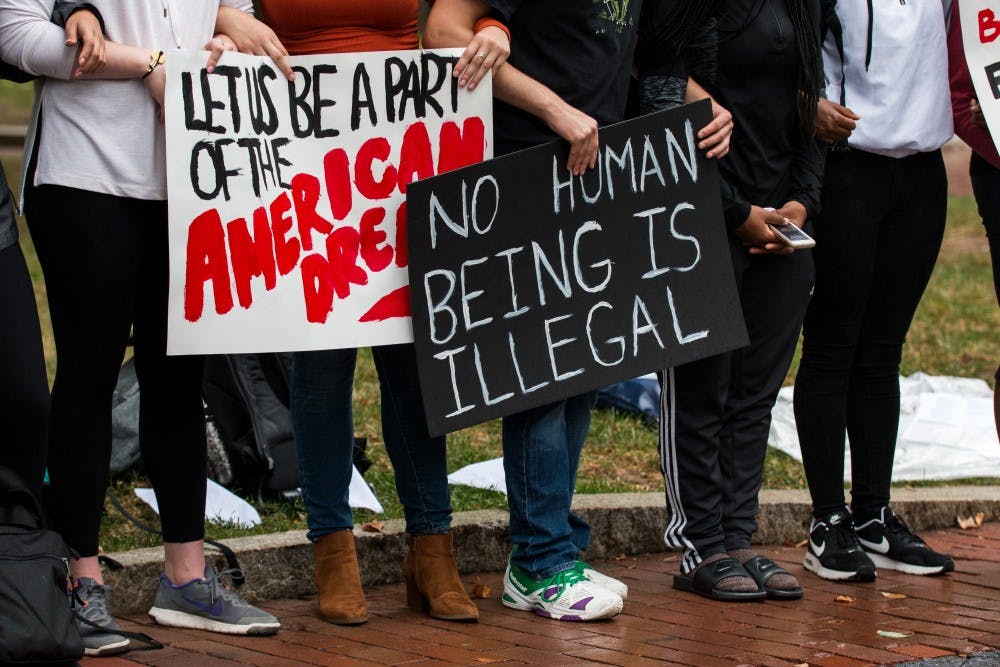
United States District Judge Michael Baylson ruled in favor of the city of Philadelphia last week in its case against Attorney General Jeff Sessions.
Philadelphia sued Sessions after the Department of Justice withheld $1.5 million in federal grant money over Philadelphia’s “sanctuary city” policies. “Sanctuary cities” are those that do not cooperate with federal agencies enforcing immigration laws, like Immigration and Customs Enforcement and Immigration and Naturalization Service.
To receive the grant, the city had to comply with Section 1373 of Title 8 of the U.S. Code. This law states that cities are required to communicate with federal agencies and INS, as well as to give ICE access to suspected undocumented immigrants, referred to as “inmates of interest."
Judge Baylson upheld that Philadelphia was “in substantial compliance” with these conditions and issued a preliminary injunction to stop the Department of Justice from withholding the grant funds. Baylson also ruled that the new conditions — allowing ICE access to city jails and release dates for suspected undocumented immigrants in police custody within 48 hours — were not related to the grant program.
The city has applied for and received the Edward Byrne Memorial Justice Assistance Grant since it was conceived in 2005. The grant has brought an average of $2.17 million to Philadelphia each year, and covers about 10 percent of the Philadelphia Police Department’s non-personnel budget. The money also goes to the District Attorney’s office and juvenile delinquency programs.
When President Donald Trump was elected in November 2016, Philadelphia Mayor Jim Kenney promised to keep undocumented immigrants safe but changed the city’s status from a “sanctuary city” to a “Fourth Amendment city” to emphasize equal treatment in the criminal justice system, regardless of immigration status.
In late January, Trump signed an executive order that cut off funding to “sanctuary cities.” This past October, 100 immigrants were arrested in Philadelphia during a nationwide raid termed “Operation Safe City” that targeted sanctuary cities.
“Philadelphia is not a ‘sanctuary city’ — if that term means that there are any policies that would prevent or inhibit the investigation, arrest, prosecution, and sentencing of aliens. There are none,” Judge Baylson said in his decision, “The city’s policies do not protect illegal aliens who commit crimes.”
Some officials celebrated this decision as a victory and said Philadelphia could be an example for other cities challenging Trump immigration policies.
“I am gratified that the judge recognized what the city has maintained all along," said City Solicitor Sozi Pedro Tulante. “We are in compliance with federal law, and attaching immigration-related conditions to a grant having nothing to do with immigration is harmful to Philadelphians’ safety.”
But other city officials, like Mayor Kenney, believe there is still a long way to go.
“This is not a time for jubilation," he said about Baylson's decision. "I’m very grateful to the court, but I’m angry we have to fight our own federal government when we have problems we could be addressing together that [the Trump administration] refuses to address because it doesn’t play to their base.”
A spokesman for the Department of Justice, Devin O’Malley, seemed to indicate that the case was not over. In a statement after the court decision, he said, “In Philadelphia, 2017 homicides have already eclipsed 2016’s numbers, and so-called ‘sanctuary policies’ further undermine public safety and law enforcement. The Justice Department is reviewing the ruling and determining next steps.”
The Daily Pennsylvanian is an independent, student-run newspaper. Please consider making a donation to support the coverage that shapes the University. Your generosity ensures a future of strong journalism at Penn.
Donate







